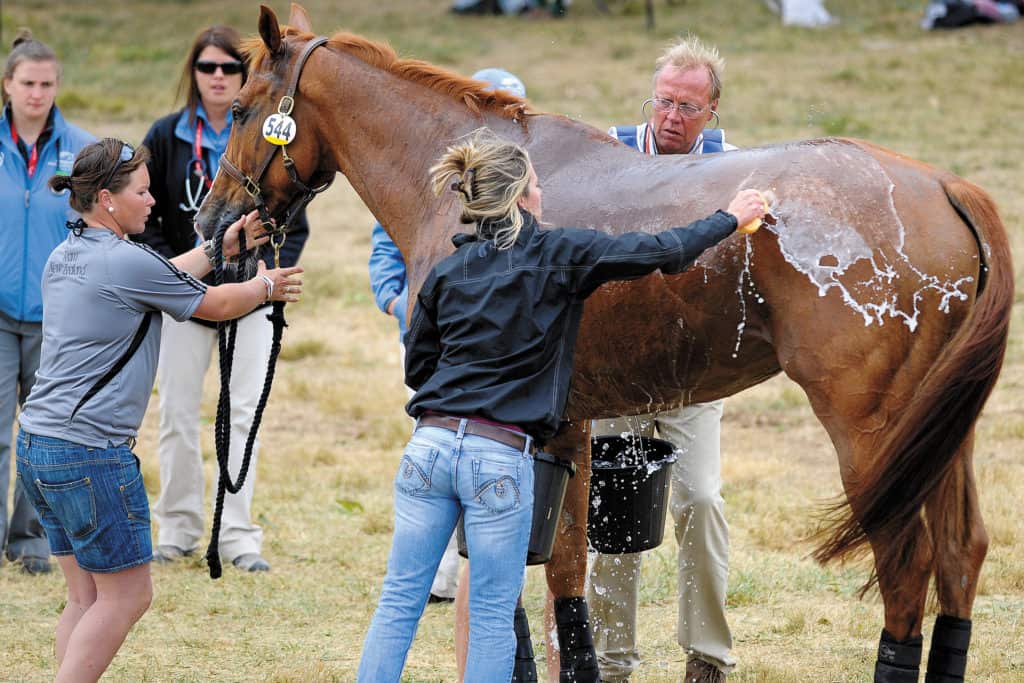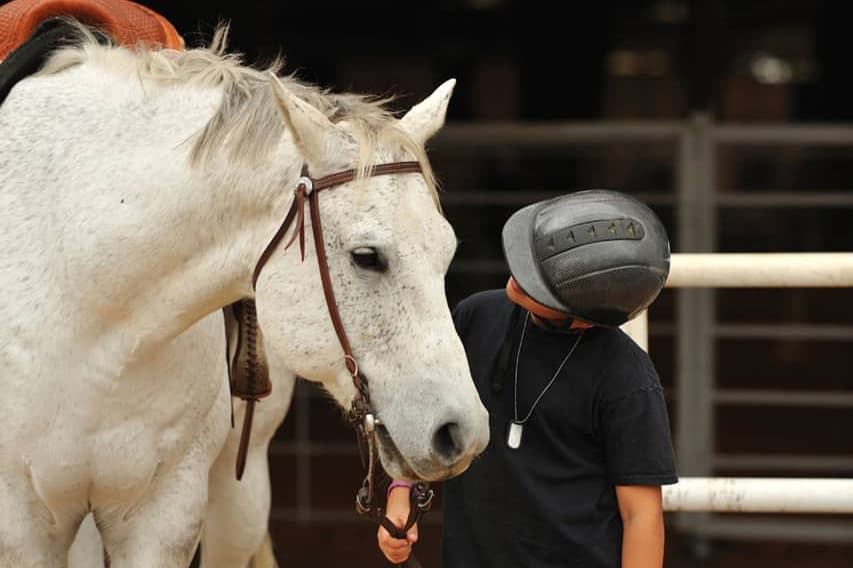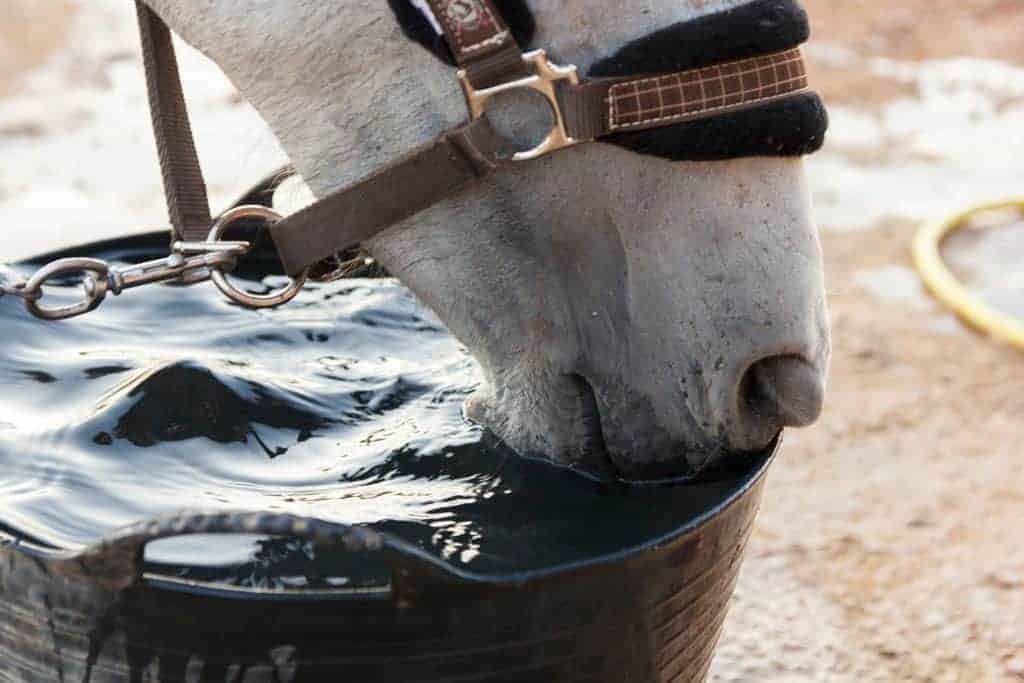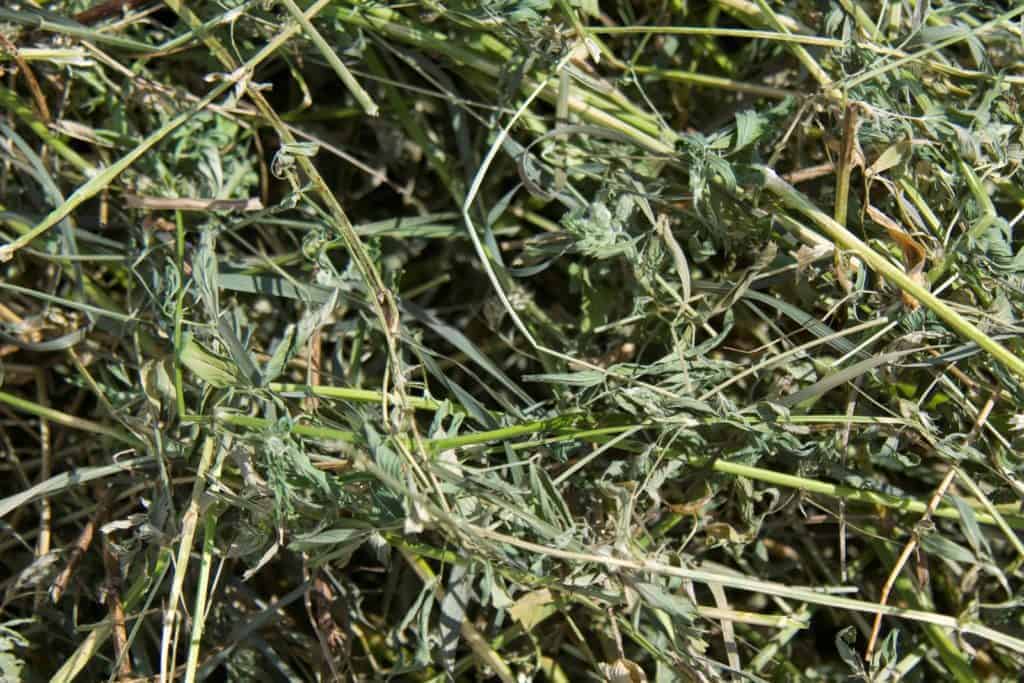
DHA Level Effect on Inflammation in Exercising Horses
Researchers evaluated how different doses of this omega-3 fatty acid affect exercise-induced inflammation.

Researchers evaluated how different doses of this omega-3 fatty acid affect exercise-induced inflammation.

A researcher investigated how long horses spent eating when offered varying amounts of soluble fiber. Her findings could help your horse avoid health and behavior issues, such as gastric ulcers and cribbing.

Up to 93% of performance horses suffer from gastric ulcers. Is yours one of them? Here’s how to manage the condition.

International Society for Equitation Science conference attendees learned about practical applications of scientific studies and discovered new theories about horse welfare and behavior.

What do we actually know? Dr. Hoyt Cheramie covers anatomy, epidemiology, pathophysiology, and management of horses with glandular gastric ulcers.

Whether you’re caring for an upper-level sport horse, have high-performance aspirations, or simply want to give your lower-level horse the Olympic treatment, here are 10 resources available to you for free on TheHorse.com.

Learn about this important piece of the equine nutrition puzzle. Is your horse getting enough?

A good lesson horse is a valuable member of any riding program. Our sources share tips on keeping these trusty steeds happy and healthy.

The researchers will weigh the elite equine endurance athletes before they travel, before they start, and during and after the grueling 100-mile ride.

Our equine nutritionist offers her secrets for solving chronic diarrhea in horses.

A Virginia Tech researcher investigated the impact of diet on lesson horses. Here’s what she found.

Set your new horse up for success by following these tips to transition his diet and avoid gastric ulcers.

Dr. Jeanette Mero offers advice for selecting electrolytes for your hard-working horse.

Researchers found providing handfuls of forage to horses within hours after colic surgery improved gut healing.

Flaxseed is quickly becoming a popular nutritional supplement for horses. But what exactly is this grain and how does it benefit the horse? Here’s wha to know about flaxseed.

Is it okay to feed a growing 3-year-old horse alfalfa hay? An equine nutritionist weighs in.
Stay on top of the most recent Horse Health news with
"*" indicates required fields